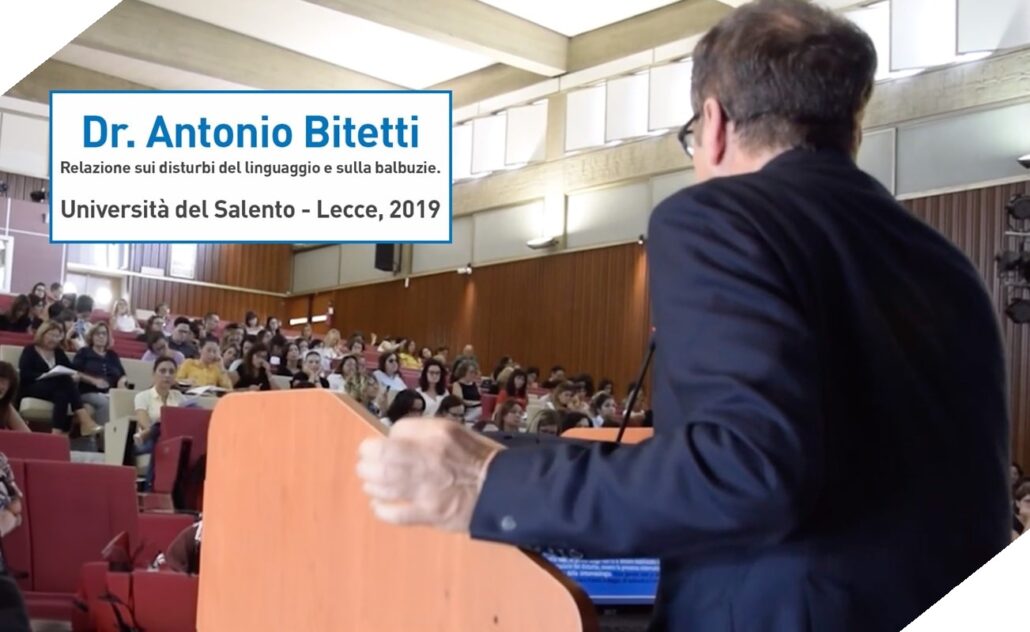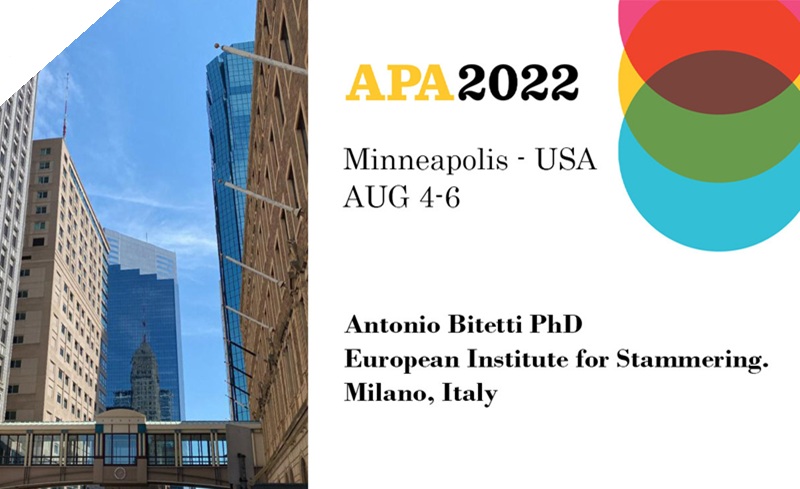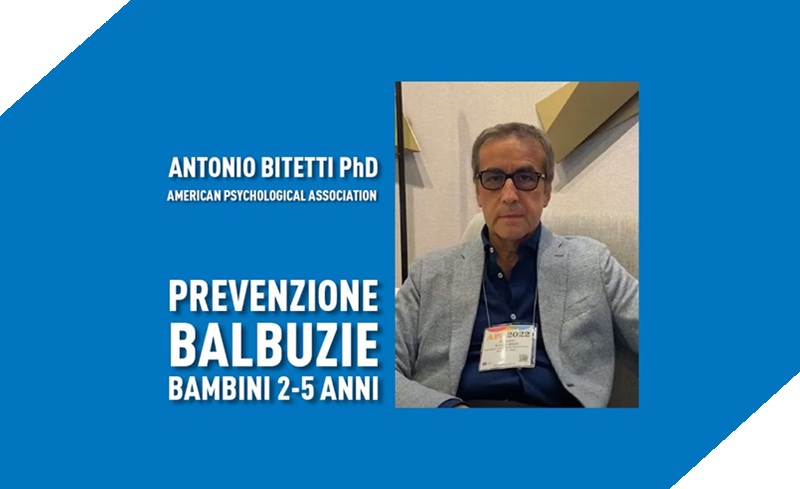In his long research work on stuttering, thanks to his personal experience of complete and profound recovery from stuttering, Dr. Antonio Bitetti has laid the foundations for a cutting-edge interpretative and methodological model, which he has spread throughout the entire national territory and which for many years has also crossed the borders of our country.
For over twenty years, Dr. Antonio Bitetti has introduced a decidedly innovative interpretative and therapeutic model in our country, regarding the treatment of stuttering: the Integrated Approach. Stuttering has always been treated with re-educational models of language, based on peripheral concepts, given that the final aspect of the problem is the difficulty in speaking normally like everyone else. However, it is important to underline that the stutterer, whether a child, a teenager or an adult, in the privacy of his own room, speaks very well, does not show any type of language difficulty.
The operating model called: “INTEGRATED APPROACH” is the natural evolution of a path of research and reflection of years and years of work on stuttering and stutterers.
Dr. Bitetti’s research aims to clarify, grow and give the best possible answers in this field of work, with humility, without neglecting the path taken so far, but improving it, always and only in the interest of research and at the service of patients.
Dr. Bitetti has always wanted to delve into the real reasons behind this widespread disorder which, let us remember, affects 2-3% of the national population. In a recent interview he gave to the Spanish television station TVSE in Madrid, the journalist recalled that in Spain there are at least 800,000 people affected by stuttering.
The stutterer knows very well what he wants to say, but is unable to express it in a fluent and serene way, as the vast majority of the population does. At this point, it is natural to ask why the stutterer has difficulty speaking when he relates to others, and instead does not stutter when he is alone. The answer cannot be simple and banal, since it involves those cognitive, emotional and relational aspects that language has in itself.
Through language, human beings create connections, express emotions, ideas, projects and therefore, we all recognize the intrinsic value of this powerful tool. Language has a structural or genetic basis and an acquired basis, of a cultural or environmental type (N. Chomsky). In childhood, the child experiences an important phase in his delicate evolutionary period and is called the stuttering phase, in which the child engages in the best possible research to converge structural aspects and cultural aspects.
Just as happens in walking, the child gradually learns to coordinate his movements, based on a series of trials and errors, also on the basis of a process of strengthening his musculoskeletal system. Once the entire sequence is acquired, the child will be able to walk alone and without the help of adults. Language follows the same logic, but unlike motor activity, language has an important relational value, since through it we are able to express emotions, sometimes, in some negative or traumatic experiences, even with a strong aggressive value.
This research by Dr. Bitetti, who is also the author of three books on stuttering (2001, 2006, 2010) the last one also translated into English and German, has focused on the mechanism of emotional control and in the case of those who suffer from stuttering, it becomes a control of the peripheral part of language, that is, the word. The vast majority of the population does not control the word while speaking, they know that it will be an automatic process, just as it happens in walking. No one would dream of controlling and verifying the movements of the legs during a walk or during a run, if we did, we would risk blocking ourselves or strongly conditioning the spontaneous activity.
Therefore, control is the real negative element of those who stutter ( Bitetti A., Emotions, Behavior and Control, 2016) and it is an aspect learned as a child, in conjunction with events with a strong negative valence, such as the birth of a sibling, conflict between parents or different experiences in which frustration and consequent aggression predominate. If left free to consolidate, in the long run, the control mechanism can create a chronic disorder, commonly called stuttering.
If kept active, this disorder risks compromising the normal relational and emotional growth of the child, to the point of making him acquire as an adult, what Dr. Bitetti defines: “the stutterer’s habit”. Stuttering, or rather stuttering, in the initial stages is an adaptive mechanism that should be abandoned in a short time, this is why it is necessary to intervene early, especially before adolescence, even better before it becomes definitively chronic.
The Integrated Approach is a cutting-edge therapy, a cure for stuttering, definitive, in the true sense of the word. There is no more precise and profound therapy than this, precisely because it goes in the right direction, which is to resolve the delicate internal and external mechanisms of the problem. The dissemination of books on stuttering is a completion of a process of in-depth study, of a disorder that should absolutely not be underestimated.
Dr. Antonio Bitetti, moreover, has extended his model of intervention of care also in a preventive manner, in those children under 4-5 years of age, who have maintained active stuttering, but cannot be defined as stuttering children. This extension of his Integrated Approach is an achievement and an absolute novelty in the national panorama and is aimed at parents who would like to intervene quickly, but do not receive adequate answers from any area in Italy.




